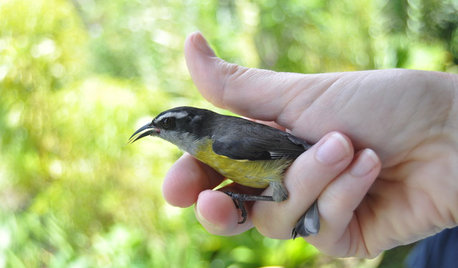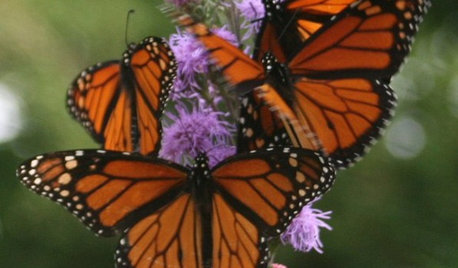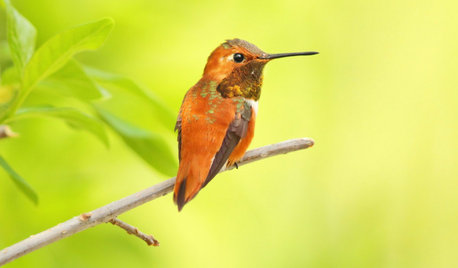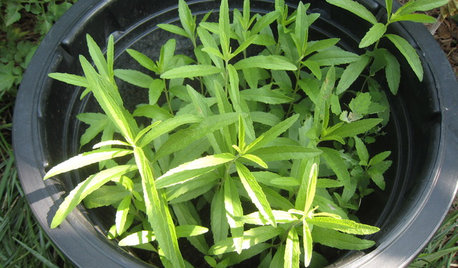As many of you know, I'm a very active butterfly/moth gardener, and we've discussed the issue of BT-altered corn and the effect on Monarch caterpillars on the Butterfly Forum recently. In short, the pollen from the silk on the corn, can be carried by wind up to 60 yards away from the corn crops onto nearby milkweed plants, thus killing Monarch caterpillars and I'm sure other butterfly caterpillars as well.
Developed for the purpose of eliminating the european corn borer, it generally destroys the beautiful Monarch caterpillars in the wake of its use.
Monarchs migrate directly through Oklahoma both during their North and South migrations, laying eggs for new generations of Monarchs to continue their trip both ways. I am thrilled when I see the beauty of these floating clouds of Monarchs flying through Oklahoma.
However, I encourage those of you who garden with BT-corn to discontinue planting it. Many times, we don't know the outcome of new products until we see the end result and the end result in this case is that it is killing the Monarch caterpillars and significantly reducing the Monarch population. Who knows, even though they say the corn is safe for human consumption, what effect it could have on us down the line?
First line of defense - don't grow it!
Secondly, the Monarchs are fast losing their habitat in Oklahoma. Over 30,000 acres of pristine native prairie habitat is being lost in Oklahoma ALONE every year. As a main corridor for the migrating Monarchs, Oklahoma is in danger of losing these beautiful butterflies for lack of native nectar and host plants. You can help!
There is an organization created by the University of Kansas called Monarch Watch. This non-profit group promotes the planting of urban, suburban, and rural gardens with milkweed and nectar plants specifically targeting the Monarch butterfly. But, at the loss rate of 30,000 acres per year, we are fast losing ground, literally, for the Monarch's host and nectar plants. I sincerely hope there is noone here who wants to ever see the Monarch facing extinction. Whatever the reason, e.g., destruction of habitat, BT-corn, pesticide usage, you can help by joining in the effort to protect the Monarch. Plant milkweed, grow a pesticide-free garden, and watch the beauty of nature at its finest through the reproductive cycle of the Monarch butterfly. Conservation is at our fingertips.
If you want some milkweed seeds, I have some I can share with you. We need to start now by helping the Monarchs survive in Oklahoma! Become a Monarch Waystation, too. A Waystation provides milkweed and nectar plants for these beautiful butterflies. Read more about it on the Monarch Watch website. I've attached a link here for you.
Thank you for your indulgence!
Susan
Here is a link that might be useful: Monarch Watch








plantermunn
steffieok
Related Discussions
Monarch Butterflies Need Help
Q
gm seed honeybee collapse
Q
Mosquito control
Q
High fatalies with captive monarchs
Q
susanlynne48Original Author
oakleif
Macmex